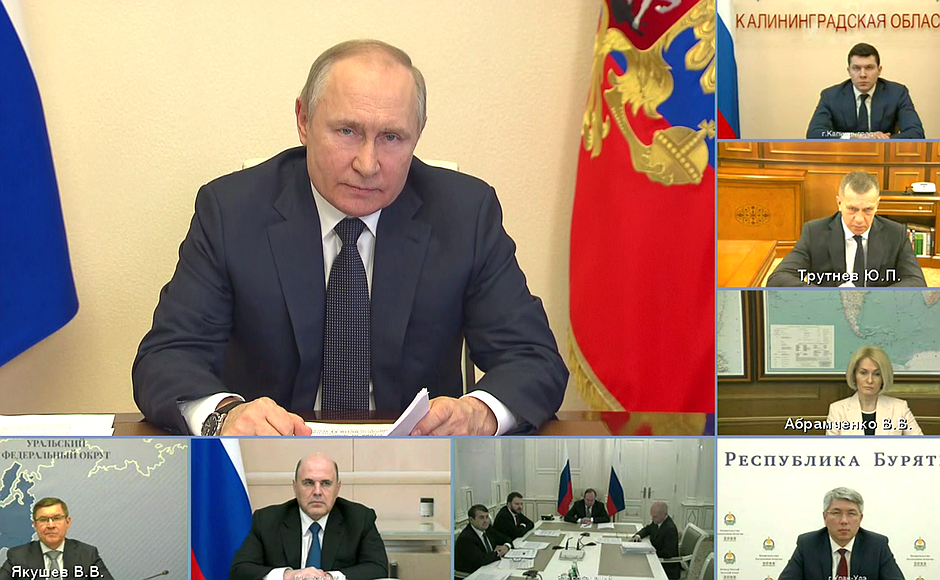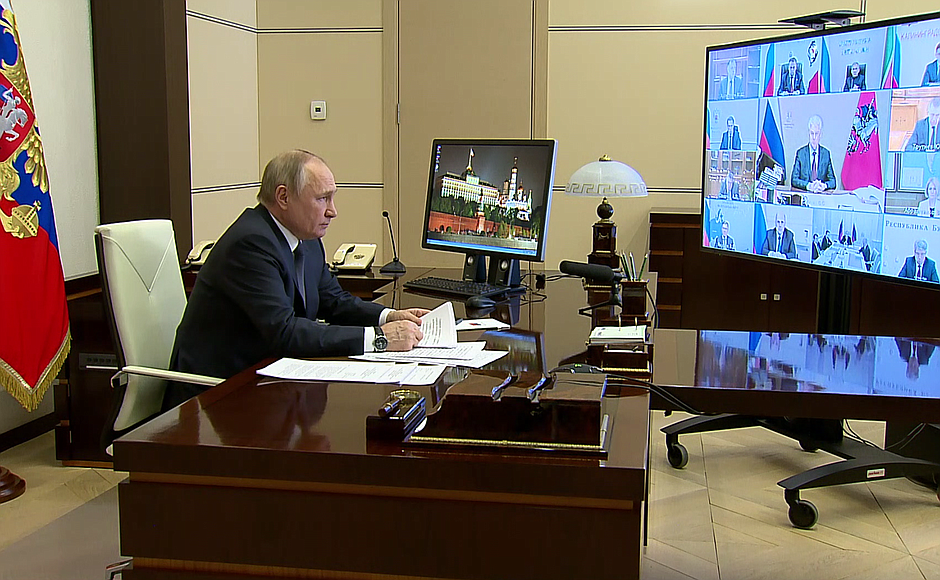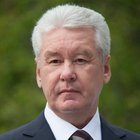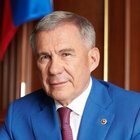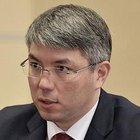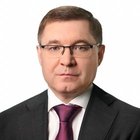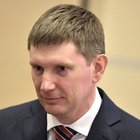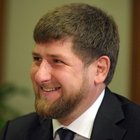The main reports of the meeting were presented by Moscow Mayor, Chair of the State Council Commission on State and Municipal Administration and Head of the State Council Working Group on Economic Issues and Countering the Spread of the Coronavirus Sergei Sobyanin; Deputy Prime Minister Marat Khusnullin; Novgorod Region Governor, Chair of the State Council Commission on Social Policy Andrei Nikitin; Head of the Republic of Tatarstan, Chair of the State Council Commission on Construction, Housing and Utilities, and Urban Environment Rustam Minnikhanov, Kaliningrad Region Governor, Chair of the State Council Commission on Small and Medium-Sized Entrepreneurships Anton Alikhanov; and Head of the Republic of Buryatia, Chair of the State Council Commission on Transport Alexei Tsydenov. In addition, Prime Minister Mikhail Mishustin, Presidential Plenipotentiary Envoy to the Urals Federal District Vladimir Yakushev, Minister of Economic Development Maxim Reshetnikov, Minister of Agriculture Dmitry Patrushev, and Head of Chechnya Ramzan Kadyrov also delivered remarks.
* * *
President of Russia Vladimir Putin: Good afternoon, colleagues.
Taking part in our meeting are senior Government officials, plenipotentiary presidential envoys in the federal districts and heads of Russian regions.
We are meeting in a complicate period as our Armed Forces are conducting a special military operation in Ukraine and Donbass. I would like to remind you that at the beginning, on the morning of February 24, I publicly announced the reasons for and the main goal of Russia’s actions. It is to help our people in Donbass, who have been subjected to real genocide for nearly eight years in the most barbarous ways, that is, through blockade, large-scale punitive operations, terrorist attacks and constant artillery raids. Their only guilt was that they demanded basic human rights: to live according to their forefathers’ laws and traditions, to speak their native language, and to bring up their children as they want.
During these years, the Kiev authorities have ignored and sabotaged the implementation of the Minsk Package of Measures for a peaceful settlement of the crisis and ultimately late last year openly refused to implement it.
They also started to implement plans to join NATO. Moreover, the Kiev authorities also announced their intention to have nuclear weapons and delivery vehicles. This was a real threat. With foreign technical support, the pro-Nazi Kiev regime would have obtained weapons of mass destruction in the foreseeable future and, of course, would have targeted them against Russia.
There was a network of dozens of laboratories in Ukraine, where military biological programmes were conducted under the guidance and with the financial support of the Pentagon, including experiments with coronavirus strains, anthrax, cholera, African swine fever and other deadly diseases. Frantic attempts are being made to conceal traces of these secret programmes. However, we have grounds to assume that components of biological weapons were being created in direct proximity to Russia on the territory of Ukraine.
Our numerous warnings that such developments posed a direct threat to the security of Russia were rejected with open and cynical arrogance by Ukraine and its US and NATO patrons.
In other words, all our diplomatic efforts were fully in vain. We have been left with no peaceful alternative to settle the problems that developed through no fault of ours. In this situation, we were forced to begin this special military operation.
The movement of Russian forces against Kiev and other Ukrainian cities is not connected with a desire to occupy that country. This is not our goal, as I pointed out openly in my statement on February 24.
As for the combat tactics drafted by the Defence Ministry of Russia and the General Staff, this has fully justified itself. Our fellows – soldiers and officers – are displaying courage and heroism and are doing all they can to avoid civilian losses in Ukrainian cities.
This is what I would like to say for the first time: at the very start of the operation in Donbass, the Kiev authorities were offered opportunities to avoid hostilities, via different channels, to simply withdraw their troops from Donbass as an alternative to bloodshed. They did not want to do this. Well, this was their decision; now they will understand what is happening in reality, on the ground.
The operation is being carried out successfully, in strict conformity with the approved plan.
I must note that, encouraged by the United States and other Western countries, Ukraine was purposefully preparing for a scenario of force, a massacre and an ethnic cleansing in Donbass. A massive onslaught on Donbass and later Crimea was just a matter of time. However, our Armed Forces have shattered these plans.
Kiev was not just preparing for war, for aggression against Russia – it was conducting it. There were endless attempts to stage acts of subversion and organise a terrorist underground in Crimea. Hostilities in Donbass and the shelling of peaceful residential areas have continued all these years. Almost 14,000 civilians, including children have been killed over this time.
As you know, there was a missile strike at the centre of Donetsk on March 14. This was an overt bloody act of terror that took over 20 lives. Shelling has been ongoing during the past few days. They are striking randomly at squares with the fervor of fanatics and the exasperation of the doomed. They are acting like the Nazis did when they tried to drag as many innocent victims as they could to their graves.
But what is shocking in its extreme cynicism is not just Kiev’s blatant lies and statements that Russia allegedly launched this missile at Donetsk (they have gone as far as this), but the attitude of the so-called civilised world. The European and American press did not even notice this tragedy in Donetsk, as if nothing happened.
This is how they have been hypocritically looking the other way over the past eight years as mothers buried their children in Donbass, as elderly people were killed. This is simply moral degradation, complete de-humanisation.
It was no longer possible to tolerate this outrageous attitude towards the people of Donbass. To put an end to this genocide, Russia recognized the people’s republics of Donbass and signed treaties of friendship and mutual aid with them. Based on these treaties, the republics appealed to Russia for military aid in rebuffing the aggression. We rendered this aid because we simply could not do otherwise. We had no right to act otherwise.
I would like to emphasise this point and draw your attention to it: if our troops had acted only within the people's republics and helped them liberate their territory, it would not have been a final solution, it would not have led to peace and would not have ultimately removed the threat – to our country, this time to Russia. On the contrary, a new frontline would have been extended around Donbass and its borders, and shelling and provocations would have continued. In other words, this armed conflict would have continued indefinitely. It would have been fuelled by the revanchist hysteria of the Kiev regime, as NATO deployed its military infrastructure faster and more aggressively. In this case, we would have been faced with the fact that the attack, the offensive weapons of the alliance were already at our borders.
I will repeat – we had no alternative for self-defence, for ensuring Russia's security, to this special military operation. We will reach the goals we set. We will certainly ensure the security of Russia and our people and will never allow Ukraine to be a bridgehead for aggressive actions against our country.
We remain ready to discuss matters of fundamental importance to Russia’s future during the talks. This includes Ukraine’s status as a neutral country, and demilitarisation and denazification. Our country has done everything it could to organise and hold these talks realising that it is important to use every opportunity to save people and their lives.
But time and time again we see that the Kiev regime, which its Western handlers have charged with the task of creating an aggressive “anti-Russia” stance, does not care about the future of the people of Ukraine. They do not care that people are dying, that hundreds of thousands, or even millions of people had to flee their homes, and that a horrendous humanitarian disaster is unfolding in the cities controlled by the neo-Nazis and armed criminals who were cut loose.
Clearly, Kiev’s Western patrons are just pushing them to continue the bloodshed. They incessantly supply Kiev with weapons and intelligence, as well as other types of assistance, including military advisers and mercenaries.
They are using economic, financial, trade and other sanctions against Russia as weapons, but these sanctions have backfired in Europe and in the United States where prices of gasoline, energy and food have shot up, and jobs in the industries associated with the Russian market have been cut. So, do not shift the blame on us and do not accuse our country of everything that goes wrong in your countries.
I want ordinary Western people hear me, too. You are being persistently told that your current difficulties are the result of Russia’s hostile actions and that you have to pay for the efforts to counter the alleged Russian threat from your own pockets. All of that is a lie.
The truth is that the problems faced by millions of people in the West are the result of many years of actions by the ruling elite of your respective countries, their mistakes, and short-sighted policies and ambitions. This elite is not thinking about how to improve the lives of their citizens in Western countries. They are obsessed with their own self-serving interests and super profits.
This can be seen in the data provided by international organisations, which clearly show that social problems, even in the leading Western countries, have exacerbated in recent years, that inequality and the gap between the rich and the poor is widening, and racial and ethnic conflicts are making themselves felt. The myth of the Western welfare society, the so-called golden billion, is crumbling.
To reiterate, the whole planet is now paying for the West’s ambitions and the West’s attempts to maintain its elusive dominance by any means possible.
Imposing sanctions is the logical continuation and the distillation of the irresponsible and short-sighted policy of the US and EU countries’ governments and central banks. They themselves have driven up global inflation in recent years, and with their actions caused rising global poverty and greater inequality across the world. The question now arises – who will answer for the millions who will die of hunger in the world’s poorest countries due to growing food shortages?
Let me reiterate, the global economy and global trade as a whole have suffered a major blow, as did trust in the US dollar as the main reserve currency.
The illegitimate freezing of some of the currency reserves of the Bank of Russia marks the end of the reliability of so-called first-class assets. In fact, the US and the EU have defaulted on their obligations to Russia. Now everybody knows that financial reserves can simply be stolen. And many countries in the immediate future may begin – I am sure this is what will happen – to convert their paper and digital assets into real reserves of raw materials, land, food, gold and other real assets which will only result in more shortages in these markets.
Let me add that the seizure of foreign assets and accounts of Russian companies and individuals is also a lesson for domestic businesses that there is nothing as reliable as investing in one’s own country. I personally have said that a number of times.
We appreciate the position of those foreign companies who continue working in our country despite the brazen pressure from the US and its vassals. They are sure to find additional opportunities for growth in the future.
We also know those who cowardly betrayed their partners and forgot about their responsibility to employees and customers in Russia, rushing to earn illusory dividends from joining the anti-Russia campaign. However, unlike Western countries, we will respect property rights.
Here is what I would like to point out. We must clearly understand that a new package of sanctions and restrictions would have been imposed on us no matter what. I want to emphasise this. For the West, our military operation in Ukraine is just a pretext for imposing more sanctions on us. Indeed, this time they are concentrated. In the same way, the West used the referendum in Crimea as a pretext, which, by the way, took place on March 16, 2014, eight years ago today, when the residents of Crimea and Sevastopol made the free choice to be one with their historical homeland.
To reiterate, these are just pretexts. The policy of containing and weakening Russia, including through economic isolation, a blockade, is a premeditated, long-term strategy. Western leaders are no longer hiding the fact that the sanctions are not directed against individuals or companies. Their goal is to deliver a blow to our entire economy, our social and cultural sphere, every family, and every Russian citizen.
In fact, the steps designed to make the lives of millions of people worse have all the attributes of an aggression, a war by economic, political, and informational means, and it is of a comprehensive and blatant nature. Again, the West’s top political circles do not even hesitate to talk about it openly.
The verbal tinsel of political correctness, inviolability of private property and freedom of speech was blown off overnight. Even the Olympic principles were trampled upon. They did not hesitate to settle their score through the Paralympic athletes. So much for “sport being separate from politics.”
In many Western countries, people are subjected to persecution just because they are originally from Russia. They are being denied medical care, their children are expelled from schools, parents are losing their jobs, and Russian music, culture, and literature are being banned. In its attempts to “cancel” Russia, the West tore off its mask of decency and began to act crudely showing its true colours. One cannot help but remember the anti-Semitic Nazi pogroms in Germany in the 1930s, and then pogroms perpetrated by their henchmen in many European countries that joined the Nazi aggression against our country during the Great Patriotic War.
A massive attack against Russia has also been unleashed in cyberspace. An unprecedented information campaign has been launched through global social networks and all Western media outlets, whose impartiality and independence have proved to be a mere myth. Access to information is being restricted and people are being crammed full of all sorts of fake stories, propaganda, and fabrication, or simply put, snake oil. It even got to the point where American social media companies said straight out that it was possible to post calls for the murder of Russian nationals.
We realise what kind of resources this empire of lies has at its disposal but, all the same, when confronted with truth and justice, it is helpless. Russia will never stop trying to make its position clear to the whole world. And our position is honest and open, and an increasing number of people hear, understand and share it.
I want to be as direct as possible: hostile geopolitical designs lie behind the hypocritical talk and recent actions by the so-called collective West. They have no use – simply no use – for a strong and sovereign Russia, and they will not forgive us for our independent policy or for standing up for our national interests.
We still remember how they supported separatism and terrorism by encouraging terrorists and bandits in the North Caucasus. Just like in the 1990s and the early 2000s, they want to try again to finish us off, to reduce us to nothing by turning us into a weak and dependent country, destroying our territorial integrity and dismembering Russia as they see fit. The failed then and they will fail this time.
Yes, of course, they will back the so-called fifth column, national traitors – those who make money here in our country but live over there, and “live” not in the geographical sense of the word but in their minds, in their servile mentality.
I do not in the least condemn those who have villas in Miami or the French Riviera, who cannot make do without foie gras, oysters or gender freedom as they call it. That is not the problem, not at all. The problem, again, is that many of these people are, essentially, over there in their minds and not here with our people and with Russia. In their opinion – in their opinion! – it is a sign of belonging to the superior caste, the superior race. People like this would sell their own mothers just to be allowed to sit on the entry bench of the superior caste. They want to be just like them and imitate them in everything. But they forget or just completely fail to see that even if this so-called superior caste needs them, it needs them as expendable raw material to inflict maximum damage on our people.
The collective West is trying to divide our society using, to its own advantage, combat losses and the socioeconomic consequences of the sanctions, and to provoke civil unrest in Russia and use its fifth column in an attempt to achieve this goal. As I mentioned earlier, their goal is to destroy Russia.
But any nation, and even more so the Russian people, will always be able to distinguish true patriots from scum and traitors and will simply spit them out like an insect in their mouth, spit them onto the pavement. I am convinced that a natural and necessary self-detoxification of society like this would strengthen our country, our solidarity and cohesion and our readiness to respond to any challenge.
The so-called collective West and its fifth column are accustomed to measuring everything and everyone by their own standards. They believe that everything is for sale and everything can be bought, and therefore they think we will break down and back off. But they do not know our history and our people well enough.
Indeed, many countries around the world have long put up with living with their backs bent, obsequiously accepting all the decisions that come from their sovereign, looking up to it subserviently. This is how many countries live. Unfortunately, in Europe, as well.
But Russia will never be seen in such a miserable and humiliated situation, and the fight we are waging is the fight for our sovereignty and the future of our country and our children. We will fight for the right to be and remain Russia. The courage and fortitude of our soldiers and officers, the faithful defenders of the Fatherland, should inspire us.
Colleagues,
Clearly, the ongoing developments are drawing a line under the global dominance of Western countries in politics and the economy. Moreover, they call into question the economic model that has been imposed on the developing countries and the entire world in recent decades.
Importantly, the obsession of the United States and its proponents with the sanctions is not shared by the countries that are home to more than half of the global population. These states represent the fastest growing and the most promising portion of the global economy. That includes Russia.
Indeed, it is difficult for us at the moment. Russian financial companies, major enterprises, small and medium-sized businesses are facing unprecedented pressure.
The banking system was the first to come under sanctions, but our banks dealt with this challenge. They are working literally around the clock to make payments and settlements between individual clients and to ensure the functioning of enterprises.
The second wave of sanctions was designed to set off panic in the area of retail. According to estimates, over the past three weeks, additional demand for goods has exceeded one trillion rubles. However, our manufacturers, suppliers, transport and logistics companies did everything humanly possible to avoid major shortages in retail chains.
I would like to thank the business community and the teams at companies, banks and organisations, which are not only responding effectively to sanction-related challenges but are also laying the foundation for the continued sustainable development of our economy. I would like to make a special mention of the Government, the Bank of Russia, regional governors and regional and municipal teams. In the current tough conditions, you are carrying out your responsibilities admirably.
Obviously, the attempts to organise an economic blitzkrieg against Russia, demoralise our society and push us around have failed, and so we are sure to see attempts to bring even greater pressure to bear on our country. But we will overcome these difficulties as well. The Russian economy will adapt to the new realities. We will strengthen our sovereignty in science and technology, allocate additional resources to support agriculture, the processing industry, infrastructure, and housing, and continue developing foreign trade ties to tap into rapidly growing, dynamic international markets.
Clearly, in the new realities we will have to make deep structural changes in our economy, and I will not pretend that they will be easy or that they will not lead to a temporary increase in inflation and unemployment.
In this situation, our task is to minimise such risks. We must not just meet all the social commitments of the state but also launch new, more effective mechanisms for supporting our people and their incomes.
We will focus on protecting mothers and children and supporting families with children. We have already made a decision – you know about it – to introduce as of April 1 payments for children aged 8 through 16 in low-income families. The size of the payment will range from 50 to 100 percent of the subsistence minimum for every child. Currently the national average is up to 12,300 rubles. Thus, we will have a uniform system of support from when a mother first becomes pregnant until the child turns 17.
I am instructing the Government to oversee the operation of this system so that it quickly detects any changes in the material status of families. That is, it is necessary to make sure families start receiving state support as soon as possible if the parents lost their jobs or faced other difficult circumstances.
I also ask the Government to promptly analyse the efficacy of the measures to support those who have lost their jobs. Such measures must obviously be expanded, through the social contract mechanism, among other.
I am aware that the price hikes are a big blow to people’s incomes, and so we will take action to increase all social payments shortly including benefits and pensions, we will raise the minimum wage and the minimum subsistence level and also the wages of public-sector workers. I ask the Government to calculate the exact parameters for the increases.
To emphasise, even under the current difficult conditions we must reduce poverty and inequality by the end of the year. This issue remains quite solvable even now. I ask the Government and the regions to focus on this task. I will add that we understand that it is not only an economic issue but also one of social justice.
At present, much depends on the lead of the heads of the constituent entities of the Federation and their readiness to assume responsibility. I signed an executive order today on additional powers for heads of regions – they will be authorised to take flexible and responsive decisions to support our citizens, the economy and social policy in light of the situation on the ground. Let me remind you that we streamlined our steps in fighting the coronavirus in exactly this way, making it possible to consider the situation in each region, city and village – and the situation is different everywhere.
I am instructing all the departments of federal bodies in the constituent entities of the Federation to coordinate their work with the regional authorities, and governors must establish operational centres to ensure economic development and to personally lead this work.
What is the priority here?
Private businesses must play the key role in overcoming the current problems as they can quickly rework logistics, find new suppliers and increase output of in-demand products. Supporting employment, incomes and wages and supporting the stable, balanced performance of the economy in general depend on how quickly private businesses will be able to find the right solutions and take them.
That is why we must respond to external pressure with the utmost entrepreneurial freedom and with support for business initiative.
I want the Government, law enforcement agencies and oversight authorities to continue their work on lifting unnecessary administrative and regulatory barriers. Furthermore, it is unacceptable to distract the private sector and regional authorities from addressing the most pressing tasks and burden them with all sorts of inspections and oversight procedures.
The lack of working capital and the unavailability or high cost of loans is among the key problems facing companies now, and the Central Bank was forced to take appropriate measures. In this regard, I am ordering the following steps to be taken.
First, companies that fulfill orders placed by government authorities and companies partly owned by the state should be paid for the delivered goods and services as soon as possible, and reinvest the proceeds into business. In this regard, I propose increasing the amount of advance payments under government contracts. The advance payment must amount to at least a half of the total amount of a contract, and the payment term for the delivered goods and services should be reduced to seven business days. A similar decision must also be made at the level of the constituent entities of the Federation, municipalities and companies with state participation.
Second, it is imperative to improve entrepreneurs’ ability to raise additional resources from development institutions, by which I mean expanding the Project Financing Factory’s activities (it is working well, and we know from practice that its services are in demand), providing resources for business investment plans through the Industry Development Fund (which is one of the really well-performing tools), the Bank for Small and Medium-Sized Enterprises, and also through regional support institutions, including guarantee funds. I hereby instruct the Government to allocate additional funds to the constituent entities of the Federation to fund these regional tools.
I want the Government and our colleagues in the regions to pay attention to the fact that the most important task is to ensure the availability of goods on the consumer market, primarily essential supplies, medications and medical products. Logistical complications and other objective problems that result in price surges must be resolved quickly. At the same time, it is imperative to rule out intervention in price regulation. The increased supply of goods and nothing else should lead to a decrease and stabilisation of prices.
Separately, I would like to address our exporters. Whenever deliveries to international markets do not run smoothly, you should send extra batches of goods to the domestic market rather than reduce your production rates. This should objectively reduce domestic prices, including those of gasoline, diesel, bitumen, metals, and other export goods. I want the Government and the Federal Antimonopoly Service, as well regional authorities, to monitor these markets at all times.
Furthermore, considering the new challenges faced by Russia, we must maintain and expand our long-term development agenda, including the implementation of all planned federal and regional projects. We must make full use of the potential of our budget system as a tool for stimulation.
As we agreed, federal funding for various projects, including construction projects, will be carried out in full. Moreover, in December we decided on allocating additional funds if construction costs went up for objective reasons.
I consider it important to note that there will be no problems with federal budget funding in the current situation. Our economy is generating adequate revenue. This means we will not have to resort to emissions. In simple terms, the Central bank will not have to print money. We have revenue – sound market revenue. The problem is not rooted in money. Let me repeat that we have the resources. The main difficulties are related to the supply of spare parts, technology and construction materials, and the need to organise the work of subcontractors. Therefore, the deadlines and the methods for implementing specific projects and project phases may be subject to change. This will require the smooth operation of government bodies and business representatives and expediting the implementation of import substitution programmes. This is an important point.
In the process, it is also important to simplify the procedure for cooperation between the regions and the federal government bodies and give the regions of the Federation more freedom in using resources and more opportunities for launching new construction projects and programmes.
Additional funding for road construction has already been allocated to the regions. I would like to ask the Government to consider an increase in funding other infrastructure facilities so work can start this year, and the possibility of building up purchases from Russian companies, for instance, with a view to upgrading public transport.
Obviously, this will be a serious additional burden on the budgets of the regions of the Russian Federation. Therefore, as we agreed, we will additionally adjust the subsidies to even out fiscal capacity. We will also use other measures for supporting regional finances. Thus, all payments on budget loans scheduled for this year will be suspended and payments on commercial loans will be replaced with budget loans wherever necessary. I would like to ask the Government to study this issue in detail and dig to the bottom of every case. Only a case-by-case approach will produce the desired effect.
In addition, the Finance Ministry will provide an additional unconditional credit line for every region. It will amount to 10 percent of total revenue with repayment no earlier than the end of this year.
We are going to maintain the same volume of infrastructure budget loans. I am instructing the Government to make arrangements for flexible management of this programme and to take account of the challenges involved in the implementation of the projects that I mentioned earlier. The regions should be able to take swift action on altering the portfolio and the contents of the projects, and focus on the ones that can be implemented as efficiently as possible in the current circumstances. If need be, we will explore the possibility of increasing the volume of infrastructure loans. This is possible and is quite feasible. In general, we will closely monitor regional finances and make additional decisions to support them, if need be.
I would like to emphasise that direct communication between all levels of government and a clear sequence of actions are of paramount importance now. The State Council and its specialised commissions have proved their effectiveness. I want the public administration commission led by Sergei Sobyanin to team up with our colleagues from the Government and to focus on problematic items on the regional agenda, to come up with the best solutions and to scale them to all Russian regions. We have gained extensive experience from combating the pandemic.
Colleagues,
Our economy, the state budget and private sector possess the necessary resources to address long-term tasks. All strategic and national goals that we have set for the period to 2030 must be achieved. The current challenges and the opportunities that they offer should mobilise us – this is what we should set our minds to in order to achieve tangible results in the interests of our people.
Clearly, we will need to fine-tune our programmes, and we welcome the initiatives coming from business circles, academics, and public associations. In this regard, I want the regions to join in organising the forum convened by the Agency for Strategic Initiatives titled, Powerful Ideas for New Times, where every Russian citizen will have a chance to present their proposals and specific projects for advancing their respective cities, regions, and our country as a whole.
To reiterate, the current developments represent a challenge for all of us. I am confident that we will come through with dignity. By working hard and working together, by supporting each other, we will overcome all challenges and emerge even stronger, as has always been the case in the thousand-year history of Russia. That is how I want you to think about this work.
Let us move on to discussing the agenda.
<…>
